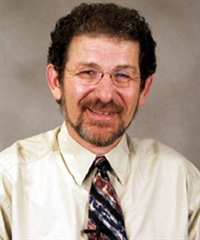EP17 Pre Conference 02 - Utilizing Clinical Hypnosis To Enhance Treatment: Make Your (Inevitable) Suggestions Count - Part 1 - Michael Yapko, PhD
- Average Rating:
- Not yet rated
- Topic Areas:
- Hypnosis | Suggestion | Pre-Conference Sessions | Hypnotic Phenomena | Psychotherapy
- Bundle(s):
- EP17 Full Con Audio Download Bundle 2020
- Categories:
- Evolution of Psychotherapy 2017 | Evolution of Psychotherapy
- Faculty:
- A. Steven Frankel, PhD, JD, ABPP
- Course Levels:
- Master Degree or Higher in Health-Related Field
- Duration:
- 2:40:42
- Format:
- Audio Only
- Original Program Date:
- Dec 12, 2017
- License:
- Never Expires.
Description
Description:
Building on the pragmatic foundation you have already developed as a clinician, you can readily appreciate that suggestion is an inevitable part of any treatment modality. The study of clinical hypnosis encourages a deeper understanding of how you already use suggestive language in your therapy approaches as well as ways to broaden your range of skills in suggesting therapeutic possibilities. Immersion in the practice of clinical hypnosis fosters sensitivity to the unique and subjective aspects of human experience and offers ways to enlist these potentials as positive allies in treatment. In this respect, hypnosis may well be regarded as the original applied “Positive Psychology,” for anyone who practices hypnosis recognizes that people have many more resources than they realize. Hypnosis allows innate resources we all have to be far more accessible, greatly empowering individuals in the process.
This workshop will provide a solid conceptual and practical framework for understanding the dynamic and fascinating field of hypnosis. The emphasis will be on starting to develop some of the core skills for designing and delivering hypnotically based interventions in ways that are consistent with your chosen style of practice. Thus, this workshop will include “hands-on” experiences as well as the opportunity to observe and deconstruct a recorded clinical hypnosis demonstration session. People learn best through experience, and hypnosis is a vehicle of focused, experiential learning. Research on the effectiveness of hypnosis highlights the fact that hypnosis enhances treatment outcomes. It is a domain of professional practice that encompasses effective and empowering approaches to psychotherapy (such as skill building, resource accessing and reframing) and behavioral medicine (such as pain management and promoting health and healing). What a privilege to work with people in this way!
Educational Objectives:
- Identify the suggestions inherent in conducting psychotherapy regardless of which specific model of (verbal) psychotherapy under consideration.
- Identify and offer multiple examples of specific forms (structures) of suggestion.
- List and describe at least three different models or conceptual frameworks for understanding hypnosis.
- List and define the so-called “classical hypnotic phenomena” that can be elicited in hypnosis (such as analgesia, time distortion, etc.).
- Describe the potential applications of hypnosis in a variety of contexts, including psychotherapy and behavioral medicine.
- List and describe specific ways people respond differently to suggestions given in hypnosis to those given outside of hypnosis.
*Sessions may be edited for content and to preserve confidentiality*
Credits
Faculty

A. Steven Frankel, PhD, JD, ABPP Related Seminars and Products
A. Steven Frankel PhD, JD, ABPP, is a clinical psychologist and an Attorney at Law licensed in California, and The District of Columbia. He is a Diplomate in both Clinical and Forensic Psychology from the American Board of Professional Psychology. He earned his PhD at Indiana University, and interned at the Psychiatric Institute of Columbia University.
After leaving full-time university service, Dr. Frankel entered clinical practice, with both in- and outpatient responsibilities. Beginning in 1980, his psychology practice focused increasingly on the diagnosis and treatment of post-traumatic and dissociative disorders. He began consulting relationships with trauma treatment programs of private psychiatric hospitals in 1990. In 1993, he joined with Walter and Linda Young in the opening of a unit for the treatment of traumatic and dissociative disorders at Del Amo Hospital in Torrance, CA and remained a consultant to the program until July of 2000. An ISSD member since 1990 and Fellow since 1998, he was elected President of the ISSD for 2001-02.


